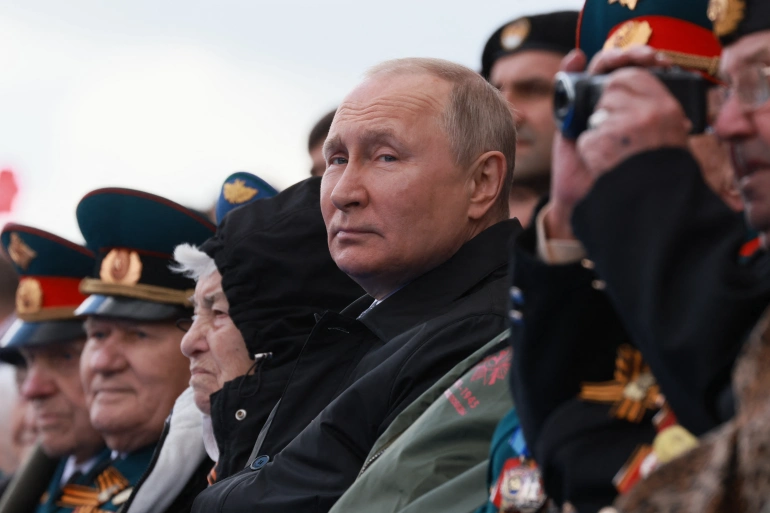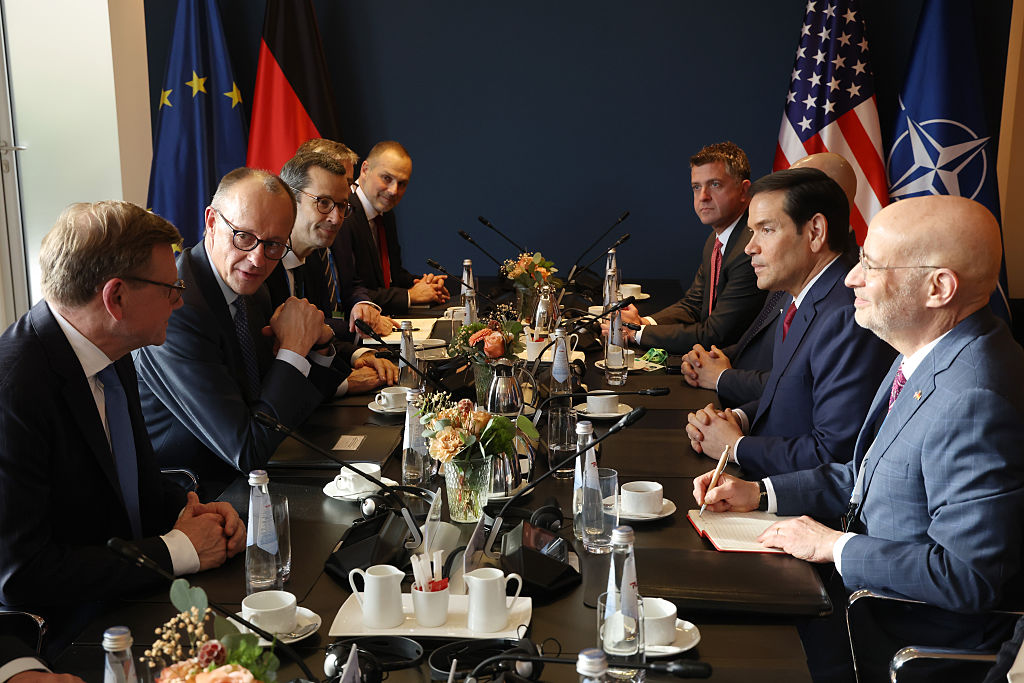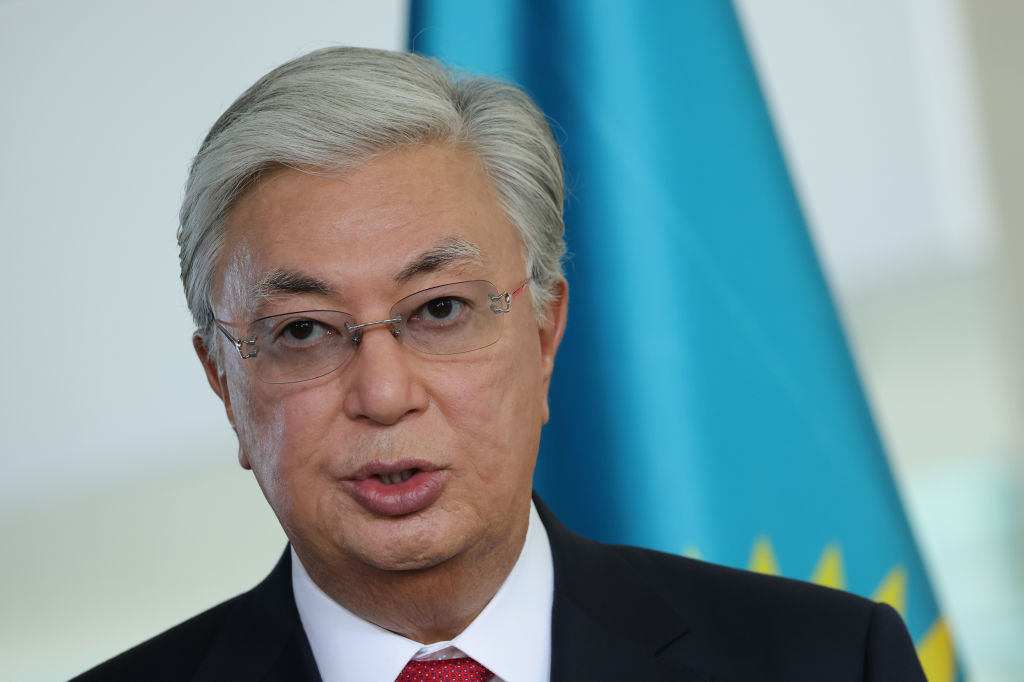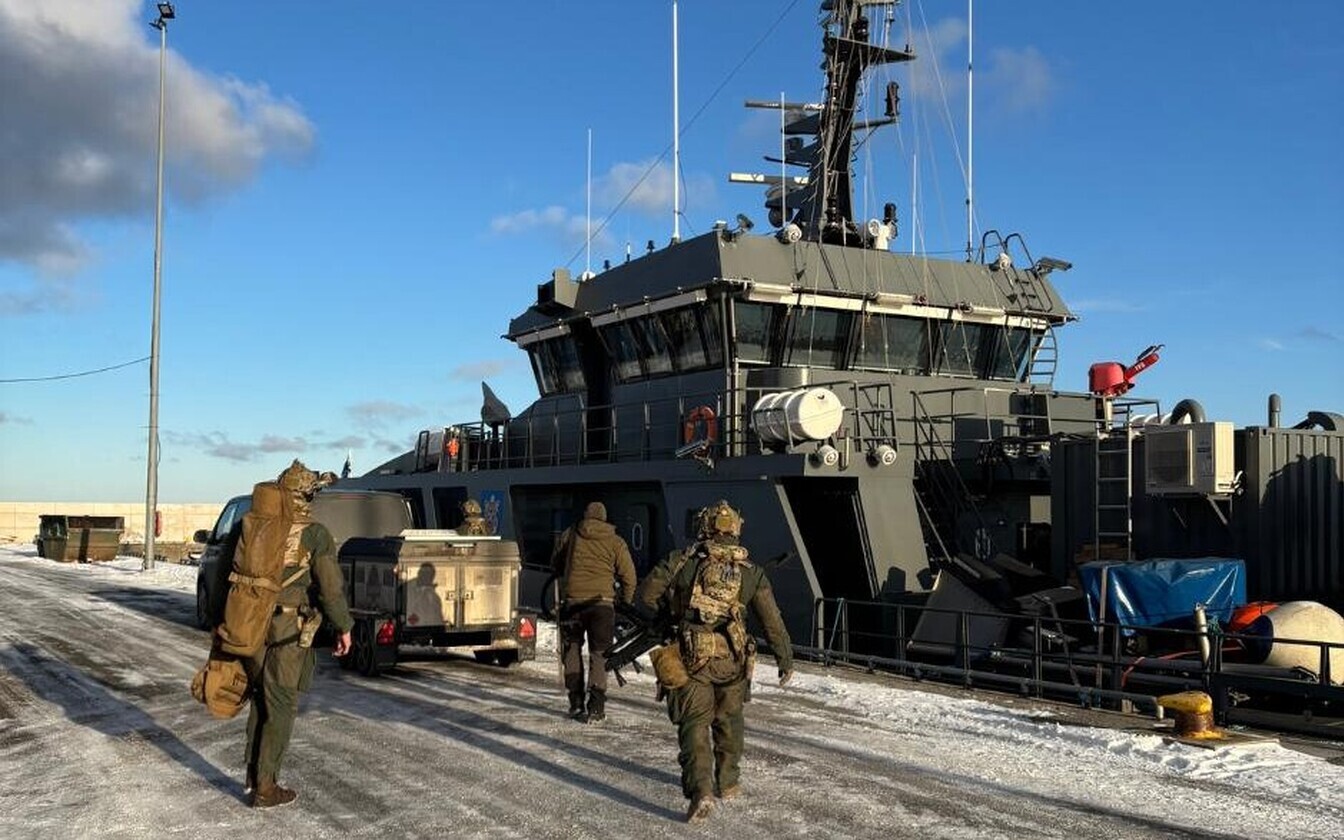
On the Occasion of May 9, 2022, Putin Had Nothing to Say
On the Occasion of May 9, 2022, Putin Had Nothing to Say
For weeks leading up to May 9, Russian President Vladimir Putin was widely expected to announce a major decision during the annual Victory Day military parade on the Red Square. Over the years, he had altered the meaning of this holiday, from celebrating the Allied triumph in the struggle against Nazi Germany to celebrating the might of Soviet/Russian militarism. In 2005, some 150 dignitaries, including then–United States President George W. Bush and then–United Nations Secretary General Kofi Annan, attended the event; in 2021, Tajikistan’s President Emomali Rahmon was the only guest of honor. This year, Putin watched the military procession alone.
The Kremlin leader surely planned for a rather different moment, likely envisaging the spectacular success of the “special military operation” against Ukraine, launched on February 24, as his only ally, Alyaksandr Lukashenka, the autocratic head of state of Belarus, confirmed poignantly (Izvestiya, May 6). More than 70 days into the war, the apparent Russian failure to conquer even the whole territory of Donetsk Oblast made it impossible to pretend that the invasion was progressing according to plan. Yet, this was exactly what Putin opted to do.
Tanks rolling beneath the Kremlin walls were vivid reminders of the charred armor littering the roads to the north and east of Kyiv, remnants of the defeat never shown on Russian TV. Propaganda can mask some embarrassing setbacks. The Russian narrative has maintained, for example that the cruiser Moskva sank because of a fire onboard; and state-backed media contends that the Ukrainian counter-offensive around Kharkiv is not happening (Charter97.org, May 7). Propaganda cannot, however, believably create out of whole cloth a breakthrough from Izyum to Slovyansk The chief of the Russian General Staff, Valery Gerasimov, reportedly tried to personally direct the offensive in this sector before being interrupted by Ukrainian artillery fire (he apparently survived) (Krym.Real, May 4). Officials from Moscow can make brief visits to the Kherson region and announce that Russia “has come here forever” (RBC, May 6). But such bragging cannot camouflage the failure of the push toward Odesa, which has left the exhausted grouping of Russian troops on the western side of the Dnieper River vulnerable to Ukrainian counter-attacks (RBC, April 26).
Russian commanders on the ground need reinforcements to prevent a spontaneous rout of their beaten and demoralized battalions, which are barely able to hold under Ukrainian fire, let alone attack fortified positions. But Putin did not even order the troops partaking in the Red Square parade to proceed to the battle, as Joseph Stalin famously did in November 1941 (Graniru.org, May 8). That restraint could have been a symbolic gesture, but the only way to bring the overstretched and under-supplied Russian forces to full combat strength is to call the war by its real name (i.e. dropping the pretense of a “special operation”) and execute a partial or total mobilization (Meduza, May 6; see EDM, May 5). Such a step was expected by many experts, including in Ukraine, but from the strategic point of view it would have been too late: any newly mobilized reservists would need many weeks of retraining, and the newly strengthened Ukrainian artillery (following an influx of Western heavy armaments) would already be having an impacting on the battlefield (RBC, May 7).
From the economic perspective, a full mobilization order would also be exceedingly difficult to implement. For one, despite plentiful expertise in managing financial flows and manipulating budgets, nobody in the government knows how to run a war-time economy (Novaya Gazeta, May 6). Additionally, Putin’s oligarchs are likely upset with how sanctions have impacted their finances and lifestyles and disinclined to mobilize their business empires to serve Moscow’s war needs (Svoboda.org, May 4).
More broadly, the Kremlin has no way of predicting how the society would respond to the sudden shift from “business as usual” mode to the “enemy at the gate” alarm; and so the authorities habitually engage in preventative denials of any intention to announce a general mobilization (TASS, May 6). In the climate of escalating repressions, reliable data on public attitudes has grown even more scarce, and opinion polls tend to supply the picture that the authorities want to see (Kommersant, May 5). Support for the “special military operation” in Ukraine is dubious and mixed with prevalent desires not to know about the unfolding disaster or to pretend that the crisis will somehow resolve itself (Riddle, May 4). The May 9 festivities, heavily imbued with patriotic propaganda, were supposed to boost national unity, but the unavoidable reflections on the old victory in the situation where the new one is so obviously denied may have the opposite effect (Meduza, May 7).
For Putin, as well as for most of his courtiers, it is much easier to communicate with older generations that are responsive to references to the glorious Soviet past than it is to impress upon the younger cohorts that they need to march into the inferno of war (The Insider, May 5). The Russian leader relies heavily on polished and falsified historical narratives, but he cannot recycle old myths so smartly that they would capture the imagination of youths who live in a cultural environment entirely foreign to him—meanwhile, the denunciations of popular bloggers and musicians as “foreign agents” does not help (Republic.ru, May 8).
Putin also presumably cannot fail to see the direct hit on his abuse of history delivered by US President Joseph Biden, who pointedly signed the legislation on lend-lease to Ukraine on May 9, almost certainly as a reminder about the massive help the United States granted to the Soviet Union in the darkest years of World War II (RBC, May 6). The expansion of Western aid to Ukraine is not simply an irritant for Putin but a force that could change the course of the war. Meanwhile, Russia’s president cannot comprehend why his persistent nuclear threats fail to dissuade the risk-averse and dialogue-inclined Europeans (Russiancouncil.ru, May 5).
The Red Square parade was smaller and less exhibitionist than usual, but it maintained a high level of posturing and falsity. Putin used to excel at pretense and manipulation, but this time he has started a real war, and apparently he has no clue how to run it. This failure of leadership is particularly striking in comparison with the outstanding statesmanship and moral integrity demonstrated by Ukrainian President Volodymyr Zelenskyy; Putin opted to spin his war-mongering message around the jingoist slogan “We can repeat.” Whereas, Zelenskyy found stronger and more noble words: “Never again.” Indeed, the solemn Victory Day has acquired new meaning this year.


